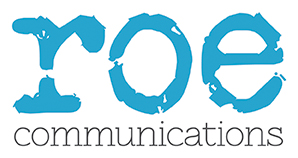Marc Ethier is the managing editor of Poets&Quants. He lives in Oakland, California, with his wife, Lisa, daughter Sylvie, and son Luc.
1. Can you give us a bit of your “back story”? What led you to your current career path?
I worked in newspapers for most of my career. Growing up and in college, I always planned to be a news reporter. I got my wish even as my career coincided with a gradual, inexorable winding down of the industry. I worked in all-size and midsize dailies and weeklies for years.
I met John Byrne in 2016 and have been managing editor of Poets&Quants since. I’m a journalist, not a business school grad or a member of the traditional business education constituencies. I have no affinity for any particular school; my only interest is helping our audience make the best choices for themselves to improve their lives.
In the United States, graduate business education is among the best and most widely available paths to greater socioeconomic success. It is the chief way, academically, whereby folks can materially improve their lives. That’s what we are about – helping them. We do it by compiling and interpreting data and by illustration – examples of success (and struggle!). We do it by finding, interpreting, and publishing as much information as possible.
2. Can you share your most interesting business school story from the last 12 months? What made it stand out?
I interviewed a Wharton MBA last year who has struggled for years to find a job, then wrote a follow-up based on reactions to the first story. They were among our most talked-about stories of the year – because they reflected a lot of anxiety among MBAs about the viability of their massive investment. I think about those stories a lot.
I also recently interviewed the head of the PhD Project, which has come under fire from conservative activists and the conservative Republican administration in Washington over its decades of successful work to diversify the faculty ranks of the nation’s business schools. I suspect we will be writing a lot this year and next about the multi-pronged effort to dismantle DEI programs in this country and how that impacts B-schools in particular. And which schools are standing their ground and which aren’t.
We also like to get out on the road as much as possible. Last year I had a chance to visit several schools. A couple of the smaller ones – Marquette in Wisconsin and Towson in Maryland – were really fun experiences that led to interesting stories. We don’t just write about the M7! I’m expecting we will have more such features this year (and every year) – more schools should invite us to visit their campus!
3. What are your dos and don’ts for business schools pitching to Poets&Quants?
a. Know our audience. Most P&Q readers are prospective MBAs, but we also have a lot of current students, alumni, admissions officers, and industry insiders. Will your story be interesting to the first group? If not, will it be interesting to some combination of the rest? If so, it’s probably interesting to us.
b. Make it compelling. Link your story to application cycles, new rankings, admissions changes, and emerging industries (particularly AI but also climate, etc.). It helps to offer a new take, an under-cover perspective, or behind-the-scenes access. Connect us with a student who defied the odds or a professor shaking up curriculum design.
c. Use data! Including data makes your story more credible, engaging, and shareable. Altogether more likely to draw eyeballs. Pull from GMAC reports (“According to GMAC’s 2024 Prospective Students Survey, 63% of non-U.S. applicants now prefer Europe over the U.S. – up from 48% in 2021”), school employment reports, rankings, LinkedIn data, or surveys. Add visuals: charts, graphics, sidebars. Use stats to back up your news – if you’re writing about a hot post-MBA career path, for example, cite how many MBAs from top schools are choosing that path now over, say, tech. Whatever it is, find a way to data-fy it.
d. Highlight access or expertise. Can you put us in touch with a student or alum with firsthand insight? Have you already interviewed someone newsworthy (e.g., a dean, alum, or hiring manager)? Do you have access to data, surveys, or personal networks that others don’t?
4. What are the top 3 things business school communicators can do to make your life easier?
a. Data! Charts and tables are especially helpful.
b. Quick responses. I know this is sometimes difficult given timezones, but the longer it takes to respond, the more likely we will move on to something else.
c. Advance notice. Give us a couple of days’ heads up, under embargo if necessary, of your news so we can plan our coverage better. Exclusivity is always nice, too.😊
5. Are you working on any exciting new projects you want to tell us about? How will they benefit your readers, and can business schools get involved?
Graduate business education’s value proposition has always been that it lifts people into better economic circumstances; America’s promise is much the same, with extra points for hard work. No one believes more strongly in both these things than those who come here at great risk. So we are embarking on an MBA immigrants series: highlighting the success stories of MBAs who came to the U.S. for their degree and to start their post-grad careers.
We have some very nice packages on top schools for studying in the UK and France, and we are working on more regions; all that will be published this year.
We may be hitting the road more than usual this summer… B-schools can invite us to campus!


